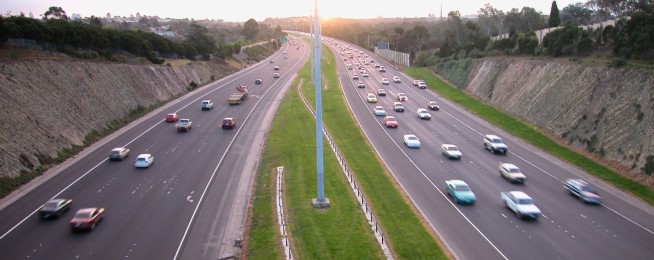Could it be that the billions of dollars we are spending on freeways and road tunnels across Australia is for the benefit of just one segment of the population, the well-off elderly?
New research is pointing to the possibility that young people are about to abandon cars in droves.
Given a choice, they will take public transport or a bike.
They have lost interest in getting a car licence. They have better things to do than drive.
Our freeways in years to come could be roads where only wrinklies fly.
The major study by Monash University, in conjunction with University of North Carolina at Chapel Hill, University of Oxford, University of Leeds and Georgia Institute of Technology, was the first to compare the travel behaviour of young adults at different life stages and income levels in some of the worldʼs most cosmopolitan cities – Melbourne, Brisbane, London, New York and Atlanta.
It found that Australian millennials are taking longer to get a driver's licence and using public transport more.
Melbourne and Brisbane have the highest increases in transit kilometres travelled by young adults (18 to 30) of any major world city (45 per cent and 66 per cent, respectively).
The car travel of young adults in London is declining the fastest (-47 per cent).
All cities, apart from New York, recorded a substantial increase in transit kilometres taken by millennials over the past 10 to 15 years – with Brisbane the highest at 66 per cent and Melbourne increasing strongly by 45 per cent.
The number of young Victorians getting a driving licence has declined from 76 per cent in 2000 to 57 per cent in 2018.
“At this rate, only half of 18 to 23-year-olds in Melbourne will get a licence by 2025,” said Dr Alexa Delbosc, lead researcher and Senior Lecturer in Civil Engineering at Monash University.
“The transport patterns of young people partly emerge from wider economic, social, environmental and political trends affecting the population at large.
“But equally important, our study suggests that investments in transit infrastructure are critical if we want to see young people turn away from car travel,” she said.
I guess that in the future we can expect to see more large print signs on our freeways, more toilets stops, and accessible defibrillators at service stations.
Become our friend
Find out more about Bicycle Network and support us in making it easier for people to ride bikes.


